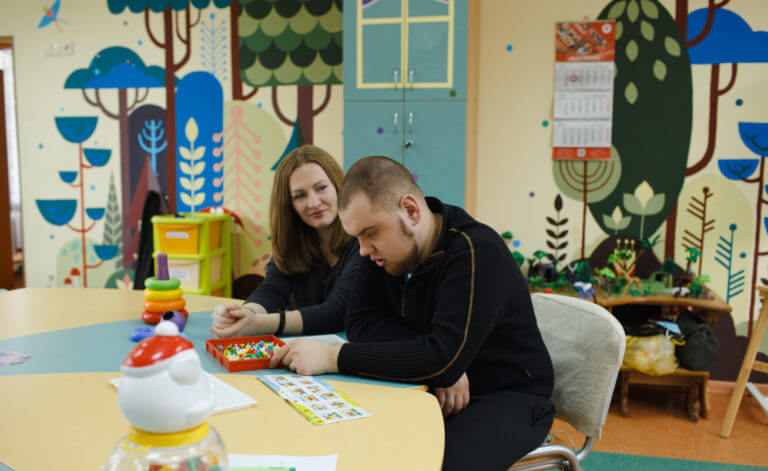
As awareness of autism spectrum disorder (ASD) continues to grow, more adults are seeking evaluation for potential autism. Autism is often diagnosed in childhood; however, many individuals are diagnosed in adulthood. According to the Centers for Disease Control and Prevention (CDC), over 5 million adults in the United States have ASD.
Symptoms of autism can significantly impact one’s quality of life, and a professional diagnosis can be the start of self-acceptance and continuing support for the individual. Adult autism testing can provide clarity and understanding for those who suspect they may be on the spectrum.
Here’s what you need to know about the process and where you can go in Virginia for autism testing for adults.
Understanding Autism Spectrum Disorder
Autism spectrum disorder (ASD) is a developmental condition marked by difficulties in social interaction and communication. It is a condition that exists on a spectrum, resulting in diverse impacts on individuals and varying degrees of severity. Some individuals may have mild symptoms and excel in certain areas, while others may require significant support in daily life.
Signs and Symptoms of Autism in Adults
Autism can manifest differently in adults compared to children, and symptoms may be more subtle or masked by coping mechanisms developed over time.
Common signs of autism in adults include the following.
Challenges with Social Interaction
- Difficulty interpreting social cues, such as facial expressions, body language, and tone of voice
- Struggling to initiate or maintain conversations
- Feeling uncomfortable in social situations or experiencing social anxiety
- Difficulty understanding or expressing emotions appropriately
Communication Difficulties
- Using language in a literal or concrete manner
- Difficulty understanding sarcasm, irony, or humor
- Limited or repetitive speech patterns
- Difficulty with nonverbal communication and making eye contact
Restricted and Repetitive Behaviors
- Making repetitive movements, such as rocking
- Adhering to strict routines or rituals and becoming upset by changes in routine
- Intense focus on specific interests or topics, often to the exclusion of others
- Sensory sensitivities, such as being hypersensitive to sounds, lights, textures, or smells
Difficulty with Social Relationships
- Struggling to form and maintain meaningful friendships or romantic relationships
- Feeling isolated or misunderstood by others
- Misinterpreting social cues or intentions of others
- Difficulty with empathy or understanding others’ perspectives
Employment and Academic Challenges
- Difficulty with organization, time management, or completing tasks
- Trouble adapting to new environments or job responsibilities
- Difficulty with executive functioning skills, such as planning, problem-solving, and decision-making
- Underemployment or unemployment despite having skills or qualifications
Mental Health Conditions
- Higher rates of anxiety, depression, or other mental health conditions compared to the general population
- Difficulty managing emotions or coping with stress
- Increased risk of experiencing meltdowns or sensory overload in overwhelming situations
Autism Testing for Adults
Adult autism testing typically involves a comprehensive evaluation by a qualified healthcare professional, such as a psychiatrist specializing in autism. The evaluation may include interviews, questionnaires, and self-assessments to gather information about the individual’s communication and behavioral patterns. Family members or close friends may also be asked to provide input to aid in the assessment.
Some of the tests used in the adult autism testing are the following:
- Social Communication Questionnaire (SCQ) – A screening tool designed to assess the patient’s communication skills and social functioning.
- Autism Spectrum Quotient (AQ) – A self-assessment questionnaire that measures traits associated with autism in adults.
- Adaptive Behavior Questionnaire – A questionnaire that assesses the patient’s adaptive functioning in various domains such as communication, daily living skills, and socialization.
- Autism Diagnostic Interview-Revised (ADI-R) – A comprehensive and structured interview conducted with caregivers to gather information about the patient’s developmental history and current behaviors.
- Autism Diagnostic Observation Schedule-2 (ADOS-2) – A standardized assessment involving direct observation of the individual’s social interaction, communication, and play behaviors.
Diagnostic Criteria
The diagnosis of autism in adults is based on criteria outlined in the Diagnostic and Statistical Manual of Mental Disorders (DSM-5), published by the American Psychiatric Association.
Patients must meet the following criteria to receive a diagnosis of autism:
- Persistent deficits in social communication and interaction
- Restricted and repetitive patterns of behavior, interests, or activities
- Symptoms that significantly impact daily functioning
What Happens After Adult Autism Testing?
Receiving a diagnosis of autism in adulthood can offer several benefits. It provides individuals with autism a better understanding of their strengths and challenges. It also validates their experiences and may explain past difficulties in social, academic, or work settings. A diagnosis can also facilitate access to support services and therapies tailored to the individual’s needs.
Adult Autism Testing in Virginia
Apex Psychiatry VA offers autism testing for adults, adolescents, and children. Our compassionate team of mental health therapists is experienced in providing comprehensive autism evaluations and support in the management of the condition. We are committed to helping you live your best life as an individual with autism spectrum disorder.
For any questions or to schedule an appointment with a psychiatrist, call our office today at (540) 906-2739 or use our online form. Our friendly team is eager to assist you with your mental health needs.

